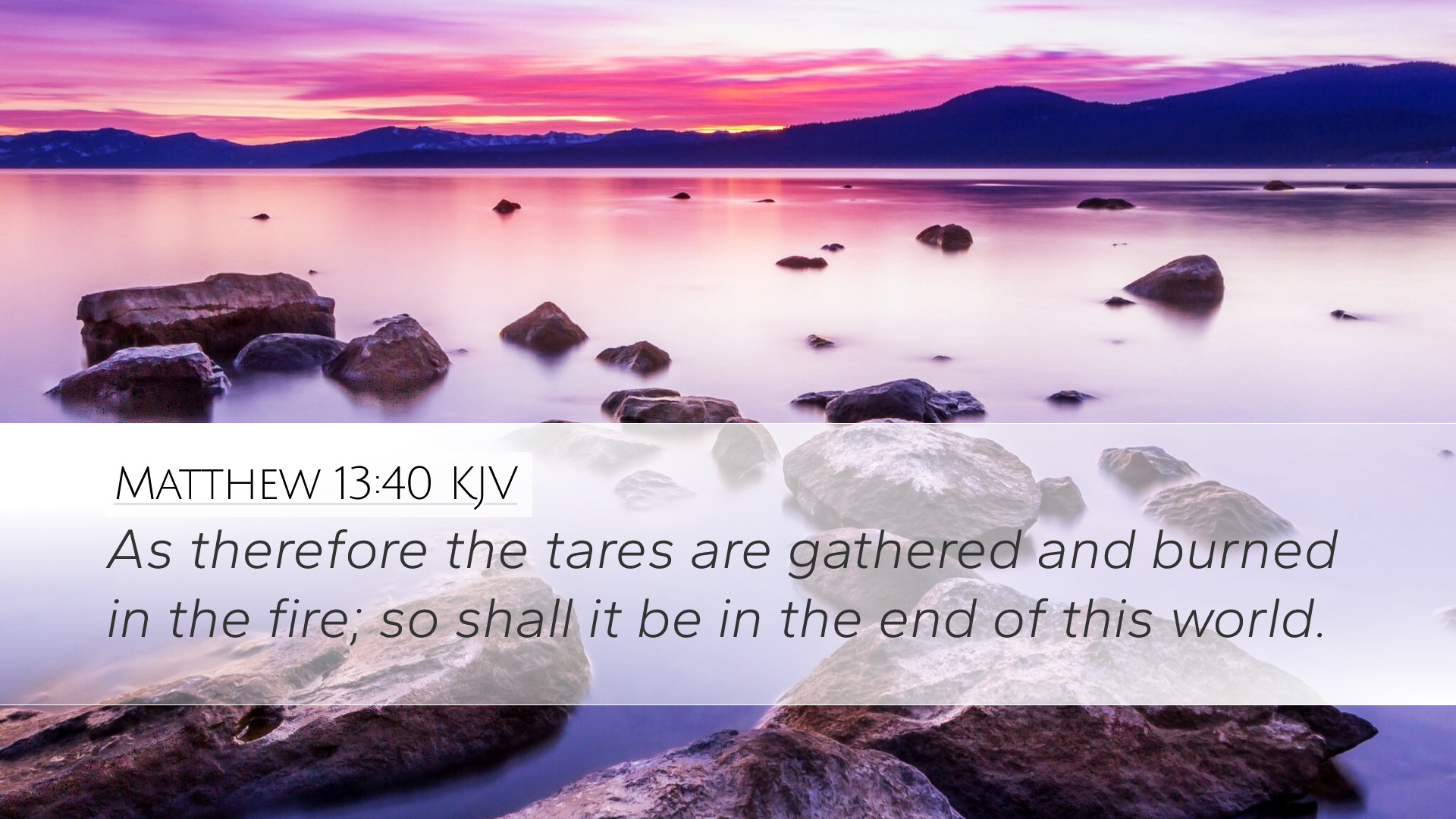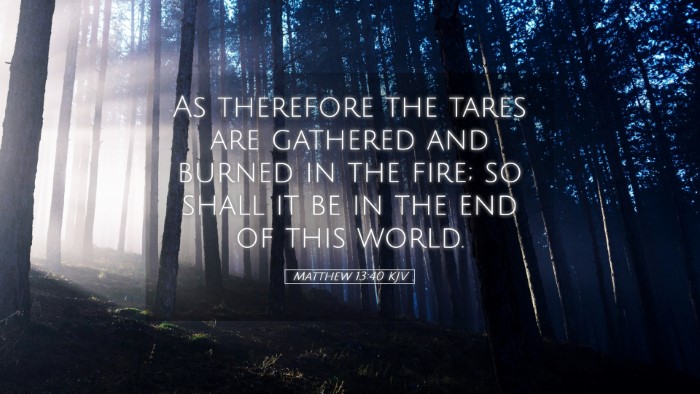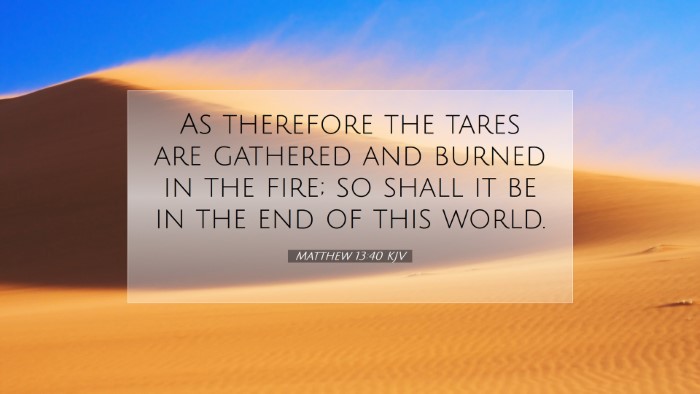Commentary on Matthew 13:40
This verse states:
“As therefore the tares are gathered and burned in the fire; so shall it be in the end of this world.”
Introduction
In examining Matthew 13:40, we find a profound teaching regarding the final judgment and the separation of the righteous from the wicked. This verse captures the essence of Jesus’ parable of the wheat and the tares, emphasizing the ultimate fate awaiting those who choose to live in opposition to God’s will.
Contextual Background
In this chapter of Matthew, Jesus shares several parables related to the Kingdom of Heaven. The parable of the wheat and the tares is specifically significant as it illustrates the coexistence of good and evil within the world. Here, Jesus clarifies what will happen at the end of the age, reinforcing the importance of righteous living as believers await His return.
Interpretation of the Verse
- The Gathering of the Tares: In this imagery, the tares represent false believers or those who have not embraced the truth of the Gospel. The act of gathering them signifies a time of reckoning, where those who choose to live in opposition to God’s ways will be confronted by their choices.
- The Fire: The fire symbolizes judgment and purification. As delivered in other scripture, the fire will separate the righteous from the unrighteous, resulting in the ultimate destruction of unholy lives.
- The End of the World: This phrase points towards the eschatological end, a day of reckoning when Christ will return to judge humanity. It is important for believers as it instills an understanding of accountability before God.
Insights from Matthew Henry
Matthew Henry provides a robust commentary on this verse, emphasizing the certainty of the judgment day:
“There will be a great separation on that day, when the righteous shall be gathered into the garner, and the wicked shall be cast into judgment.”
Henry elaborates on how this separation reflects God's justice and the fulfillment of His sovereign plan. The parable serves as a solemn warning against complacency in faith and the necessity for active righteousness.
Insights from Albert Barnes
Albert Barnes, in his exposition of this scripture, highlights the finality of God's judgment:
“The gathering of the tares signifies the final judgment, and none can escape the rigorous scrutiny of the Almighty.”
Barnes emphasizes that the fiery judgment is not just a state of punishment but a crucial element of God’s order, ensuring that evil does not persist in the Kingdom of Heaven.
Insights from Adam Clarke
Adam Clarke's commentary provides detailed insights on the historical and theological implications of this verse:
“This is a dreadful sentence, but it is just. The tares must not remain; they are to be consumed.”
He stresses the gravity of living in rebellion against God's will and underscores the call for believers to monitor their lives closely, ensuring that they embody the characteristics of wheat rather than tares.
Theological Implications
Theological reflections from this verse can be consolidated as follows:
- Judgment is Inevitable: The assurance of God’s judgment calls believers to live righteously, as it reinforces the importance of moral conduct in their spiritual journey.
- The Nature of God’s Justice: The idea of justice within God’s kingdom demands that evil be confronted and eradicated, providing believers with hope for ultimate justice.
- The Nature of Community: The coexistence of the righteous and the unrighteous in the church and the world reflects the reality of spiritual warfare, reinforcing the call for steadfastness in faith.
Conclusion
In summary, Matthew 13:40 serves as a profound reminder to all scholars, theologians, and believers of the ultimate separation that will occur at the end of the age. The insights provided from various public domain commentators highlight the importance of living out one's faith authentically and serving as witnesses of God's light in a world often overshadowed by darkness. Such an understanding invites believers to prepare themselves and others for that great day of reckoning through evangelism, discipleship, and a commitment to pursuing holiness.


